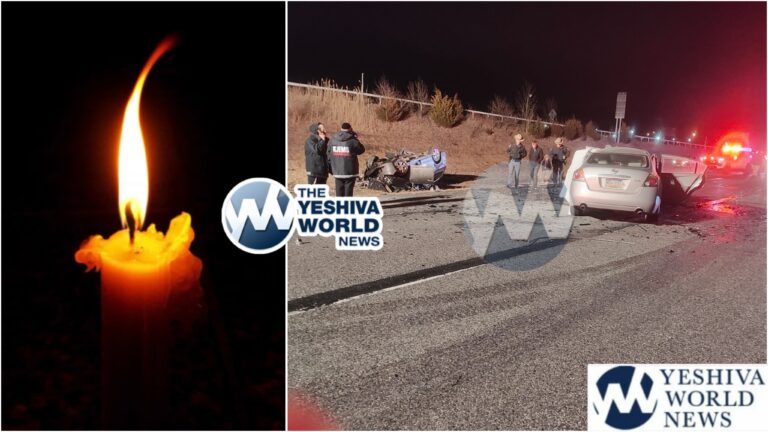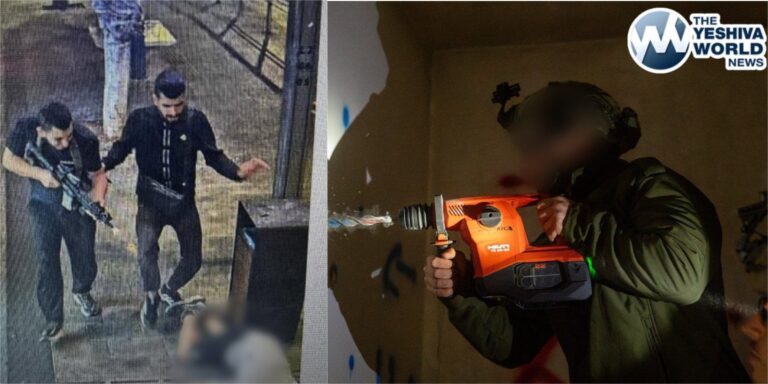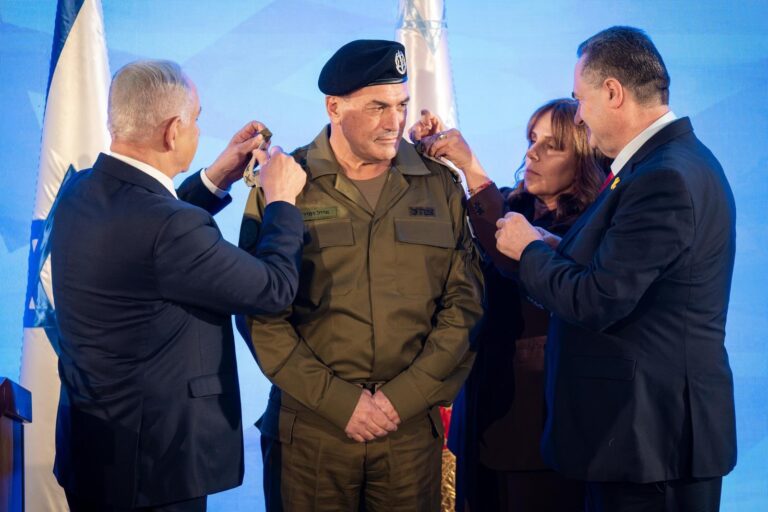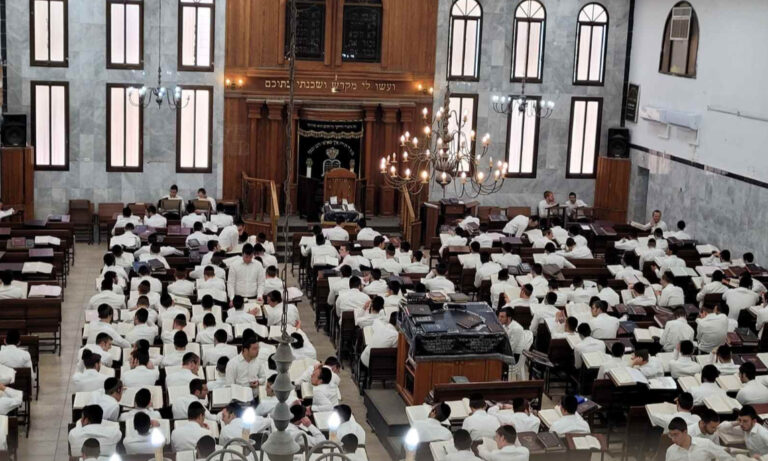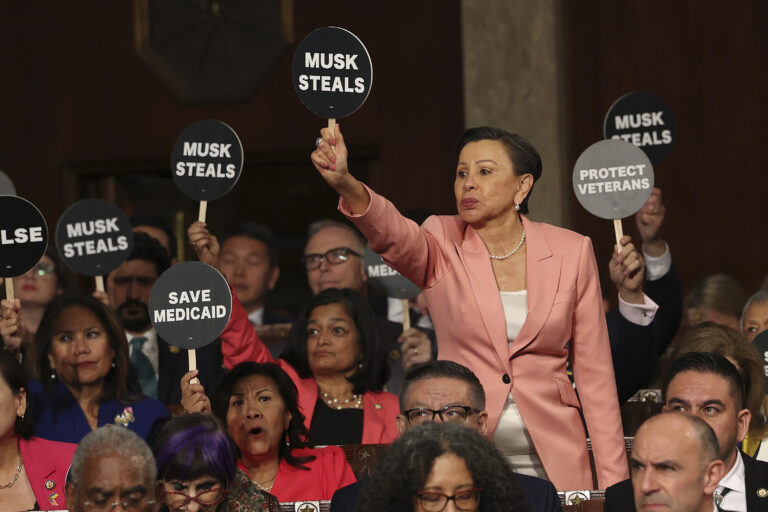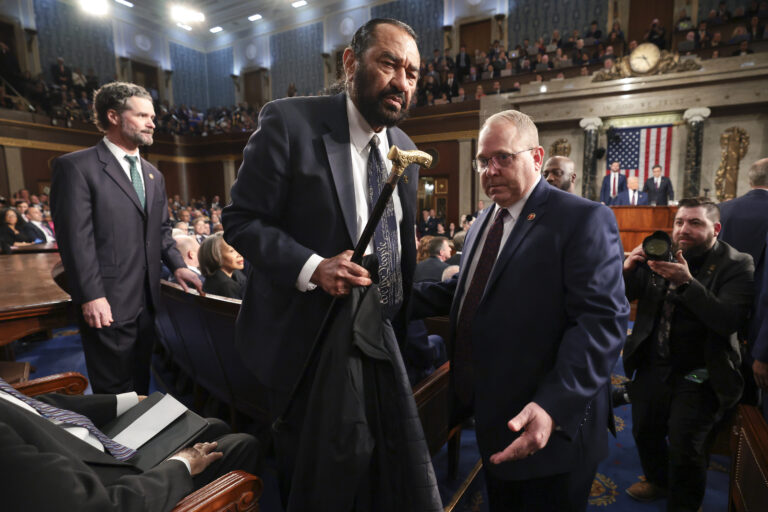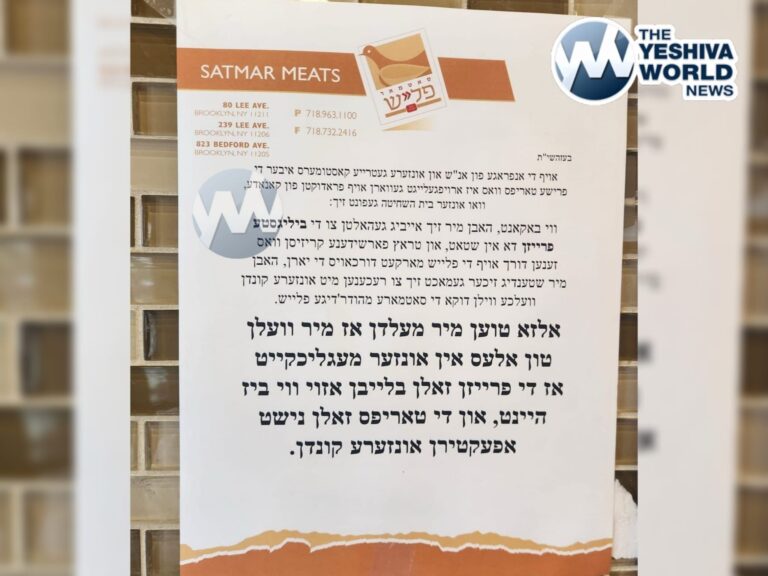 What do you do when you are responsible for responding to every kind of emergency ranging from traffic accidents to heart attacks to missile attacks to earthquakes? If you are part of Magen David Adom, Israel’s nationally mandated emergency response organization, you prepare for all contingencies.
What do you do when you are responsible for responding to every kind of emergency ranging from traffic accidents to heart attacks to missile attacks to earthquakes? If you are part of Magen David Adom, Israel’s nationally mandated emergency response organization, you prepare for all contingencies.
A recent visit to New York by Yoni Yagodovsky, MDA’s director of international affairs, provided a welcome opportunity to discuss MDA’s critical work, its current needs, and how it is planning for potential future emergencies.
Yagodovsky started as an MDA youth volunteer in 1975 and became part of the professional staff in his mid-20s. He became a certified paramedic in 1990. Now 53 and the father of three, he and his family live in Jerusalem.
Yagodovsky responded to questions posed at several briefings at the headquarters of American Friends of Magen David Adom in New York City a few weeks ago.
What is the basic role of MDA in Israel?
MDA is a critical part of the fabric of Israeli society, with a very specific but all-encompassing mission: to save lives during any kind of emergency. We do this in several ways. MDA operates a fleet of 900 ambulances and Mobile Intensive Care Units, strategically placed throughout Israel, to respond quickly with emergency first aid and care. We maintain Israel’s blood supply; we oversee a national system that collects, tests, stores and distributes donated blood. We train paramedics, EMTs and volunteers in the latest and most effective emergency treatment procedures. Our scope of work is enormous, and we do it all without government funding. MDA has been independent since it was first formed in 1930. But our mandate is clear: save the lives of Israelis, wherever they live in Israel.
How important are volunteers to the operation of MDA?
Extremely important. MDA has about 1,200 paid staff and more than 13,000 volunteers. Without volunteers, we simply could not maintain the geographical coverage or the level of care that we provide.
One of the tenets of Judaism that guides us at MDA is the importance of family and the willingness of the community to help its members. And nowhere are these values cherished more or held in higher regard than in the religious and orthodox communities. I am proud to say we have significant numbers of volunteers from those areas. For many of them, MDA is a meaningful way to contribute to society, allowing them to continue their studies and still play a vital role in the safety and security of their communities.
We see them in action all over the country, and in specific events, such as the blood donation centers that operate in Mea Shearim. If you cherish life and want to save Israelis, we have a place for you at MDA, no question.
Are you confident in MDA’s preparation to meet crises?
I believe MDA is well-positioned to handle any emergency; we have plans in place for all foreseeable possibilities. Of course, we know that there is potential for escalation in the north — from Syria or Lebanon — and we have learned from our past experiences in 2006. We have increased our capacity, keeping more ambulances in emergency storage – not used on a daily basis – that are ready to go if there is an escalation. We have more medical supplies on hand; we have constructed larger bomb shelters.
As we learned from last fall’s missile attacks that led to Operation Pillar of Defense, there is now no difference between the front lines and the center of the country, because the whole country is vulnerable.
With those realities, what precautions can MDA make?
We can make sure all of our offices have bomb shelters, that our ambulances are not all in one place and that we have proper physical protective gear — body armor and helmets — for workers who are rushing to people’s aid. We are part of a bigger system and this point is very important. We work with firefighters, police, the IDF, and the Homefront Command. Also, hospitals and regional councils, all working together in a coordinated way.
Why does MDA need a new National Blood Center?
The existing center is a high-tech pharmaceutical facility that is 30 years old and needs to expand its capacity to handle the demands of new technologies. We also saw, this past November, that is it vulnerable to rocket and missile attacks targeting the middle of the country. Finally, the old building was constructed using regulations from the 1970s and we are concerned it might not withstand a large earthquake.
Is there potential for an earthquake?
Yes. The Syrian-African fault line, which runs through Israel, is seismically active. The potential is there.
How is MDA preparing for a possible earthquake?
We know that if Israel suffers a serious earthquake, we will have to work in smaller and local community teams — we might not be able to provide national support from one region to the next. We have pre-positioned people and work with communities to build up local forces to be able to respond within the community for up to 72 hours, until the full extent of injuries and damages can be assessed.
What kind of training has been done?
We work in cooperation with police, fire departments and the army, holding exercises for local and intraregional support. Last October, we held a national emergency exercise focusing on earthquake preparedness and response. I believe we are much better prepared today than ever before.
What is the strategic thinking behind MDA training?
The work of MDA demands that we maintain a constant state of readiness. The difference between an ordinary day and the need to use our full capacity can be a split second. No matter what else may be going on, we must always make sure we have enough teams to deal with routine medical emergencies. Also, maintaining blood reserves, collecting donations of blood — this ongoing work becomes even more important during a crisis.
What is the least known fact about MDA?
Certainly the point about our funding is not well-known. MDA receives no funds from the Israeli government. Our annual budget comes from only two major sources: donations from abroad — with the vast majority coming from generous American donors – and fees for services rendered. Without our supporters from around the world, and the U.S. in particular, we could not save lives. Those funds pay for new ambulances, technology upgrades, medical supplies, blood services programs, and ongoing training for our medical teams. Donations are critical to our mission of saving lives in Israel.
To learn more or make a donation, visit www.afmda.org.

